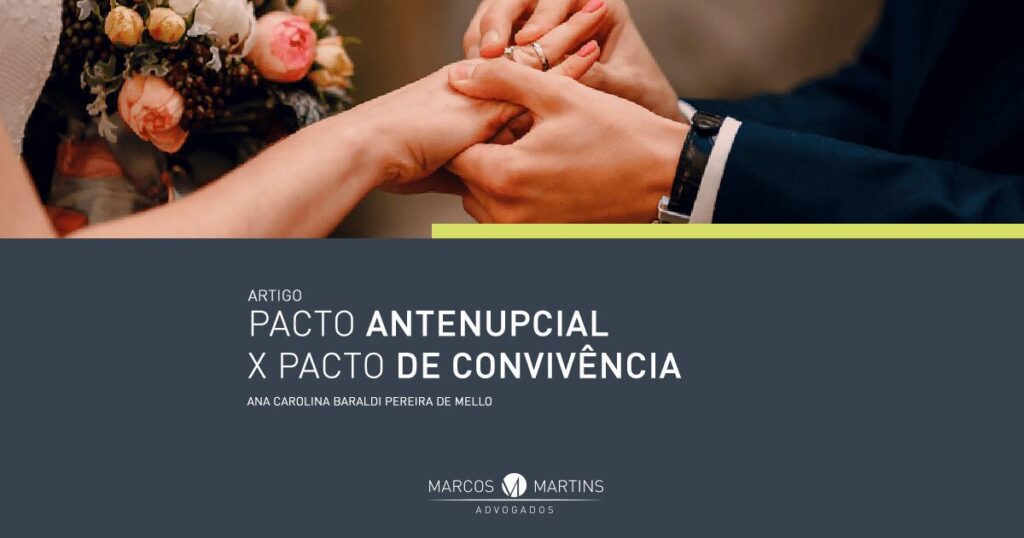
Ana Carolina Baraldi Pereira de Mello
Advogada do Escritório Marcos Martins Advogados
É lícito ao casal interessado na celebração do casamento estipular previamente o regime de bens que melhor lhes aprouver, é o que dispõe o artigo 1639 do Código Civil.
As exceções legais à opção de escolha estão insculpidas no artigo 1641 do referido diploma legal, que prevê as hipóteses em que obrigatoriamente será adotado o regime de separação total de bens, ou seja, o casal não terá discricionariedade na escolha do regime aplicável. Observarão obrigatoriamente o regime de separação de bens no casamento: (i) as pessoas que contraírem matrimônio na vigência das causas suspensivas da celebração do casamento, previstas no artigo 1523 do Código Civil[1], a exemplo disso, o viúvo ou viúva que tiver filho do cônjuge falecido, enquanto não concluído o inventário; (ii) as pessoas maiores de 70 anos; (iii) todos que dependerem de suprimento judicial para casar, o menor de idade por exemplo.
Exceto nas situações em que se aplica o regime de separação obrigatória, caso o casal não opte por regime diverso mediante a convenção de pacto antenupcial, vigerá o regime de comunhão parcial de bens, regra legal na ausência de convenção expressa contrária.
Portanto, a adoção de regime diverso exige a formalização de pacto antenupcial que estipulará o regime de bens, podendo ser este expressamente previsto no código, ou então um regime híbrido.
O pacto antenupcial é um pré-contrato, que exige a celebração do casamento para sua plena validade e eficácia, assim como a observância de forma legal, vigente a partir da data do casamento.
Os regimes de bens previstos no Código Civil são: comunhão parcial de bens, comunhão de universal, participação final de aquestos e separação total.
No pacto antenupcial os nubentes, denominação dada aos interessados no casamento, podem convencionar um dos regimes legais, ou qualquer posição que melhor convir ao casal. O pacto pode versar sobre cláusulas econômicas, pessoais e afetivas, sendo livre a deliberação, desde que não haja contrariedade legal.
Importante destacar que para sua plena validade e eficácia o pacto antenupcial deve cumprir as formalidades exigidas pela lei, à luz do disposto nos artigos 1653 a 1657 do Código Civil.
O pacto antenupcial deverá ser celebrado por escritura pública, sob pena de nulidade e seguido da celebração do casamento, sob pena de ineficácia. A partir do registro o instrumento será válido, inclusive perante terceiros.
Há uma tendência atual de fixação de cláusulas penais afetivas no pacto, ou seja, disposições que dizem respeito à multa ou penalidade de caráter indenizatório em razão de infidelidade, por exemplo. Outra tendência atual é a previsão de alimentos compensatórios, que diferentemente dos alimentos legais, são previamente pactuados, tem caráter indenizatório e são determinados por período pré-fixado na ocasião da separação, com base nos anos de relação havida, por exemplo.
Desta forma, caso os nubentes optem por regime diverso à regra geral da comunhão parcial de bens e, à exclusão das hipóteses de aplicação do regime de separação legal, deverão celebrar o pacto antenupcial prevendo a convenção desejada e observando às formalidades legais, a fim de dar plena validade e eficácia ao documento.
Diferentemente do pacto antenupcial, o pacto de convivência é um instrumento firmado entre o casal que convive, mas não está legalmente casado e dispensa a formalidade legal.
O pacto de convivência é uma alternativa simplificada aos conviventes em união estável, ou até mesmo namoro, que querem dispor sobre as regras que regem a relação.
O pacto de conivência disciplina as medidas a serem adotadas e evita conflitos. Assim como ocorre no pacto antenupcial, o casal pode dispor livremente sobre seus termos, desde que não haja contravenção à disposição absoluta de lei.
O pacto de convivência é um instrumento particular, opcional, em que os conviventes podem afastar a aplicação do regime de comunhão parcial de bens caso configurada união estável. Trata-se de uma criação doutrinária, vez que a lei não positiva seus termos, mas a ele se aplicam as normas gerais dos contratos.
Em ambas as hipóteses, é importante que o casal busque auxílio profissional de advogados para discutir com prudência as cláusulas inseridas no pacto, garantindo assim sua absoluta validade e eficácia.
Nesse sentido, o escritório Marcos Martins Advogados está apto para
atender os seus clientes e auxiliá-los na celebração de pacto antenupcial e
pacto de convivência, buscando sempre defender seus interesses da melhor forma.
[1] Art. 1.523. Não devem casar:
I – o viúvo ou a viúva que tiver filho do cônjuge falecido, enquanto não fizer inventário dos bens do casal e der partilha aos herdeiros;
II – a viúva, ou a mulher cujo casamento se desfez por ser nulo ou ter sido anulado, até dez meses depois do começo da viuvez, ou da dissolução da sociedade conjugal;
III – o divorciado, enquanto não houver sido homologada ou decidida a partilha dos bens do casal;
IV – o tutor ou o curador e os seus descendentes, ascendentes, irmãos, cunhados ou sobrinhos, com a pessoa tutelada ou curatelada, enquanto não cessar a tutela ou curatela, e não estiverem saldadas as respectivas contas.
Parágrafo único. É permitido aos nubentes solicitar ao juiz que não lhes sejam aplicadas as causas suspensivas previstas nos incisos I, III e IV deste artigo, provando-se a inexistência de prejuízo, respectivamente, para o herdeiro, para o ex-cônjuge e para a pessoa tutelada ou curatelada; no caso do inciso II, a nubente deverá provar nascimento de filho, ou inexistência de gravidez, na fluência do prazo.








